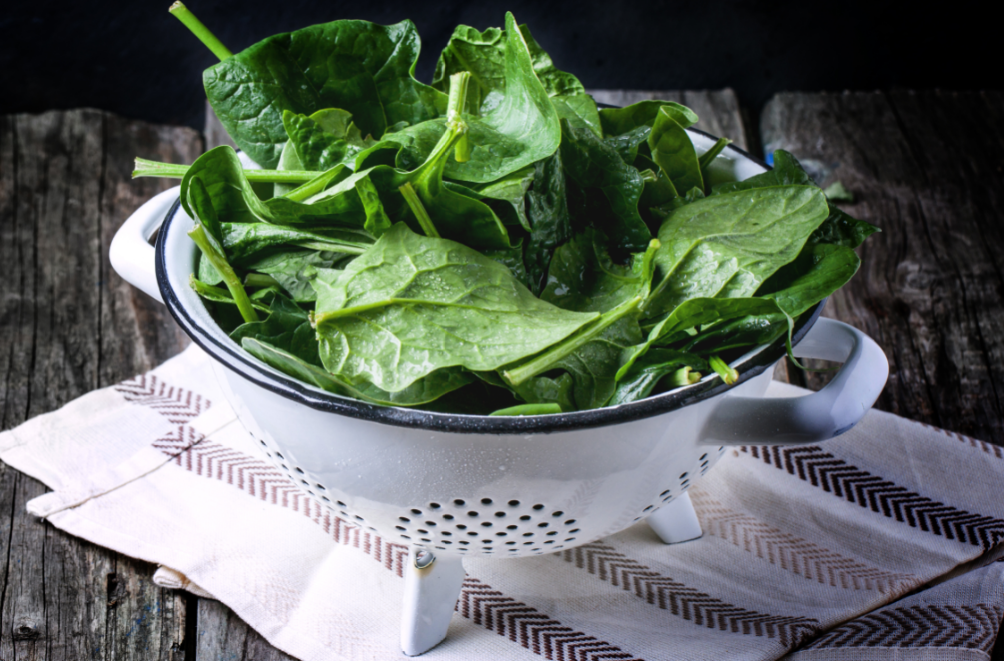Folic acid or folate is an important B vitamin that your body needs both before you become pregnant and in the early stages of pregnancy to help your baby’s spinal cord and brain develop normally. The term folate is used when referring to the form found naturally in foods. The term folic acid is used when referring to the form that is used in supplements or fortified foods.

Because folic acid is more readily absorbed in the human body than natural folate, the recommended intake for folate is provided in dietary folate equivalents (DFEs), where 1 µg DFE = 0.6 µg folic acid. Daily intake of 400 µg DFE is recommended before becoming pregnant and 600 µg DFE during pregnancy. Many dark green vegetables such as spinach, asparagus, and Brussels sprouts are great sources of folate. Folate or folic acid is also found in beans, legumes, some citrus fruits, and fortified breads and cereals.
Three easy ways to increase your folate/folic acid intake:
1. Add more greens and beans to your diet
- Purchase a variety of greens that you can mix up in a salad for your lunches during the week.
- Add some spinach, kale, or chard to your scrambled eggs.
- Try broccoli and asparagus with dip for a great snack.
- Make a bean and rice burrito packed with greens and other toppings of your choice.
- Add a can of beans to your favorite vegetable soup.
2. Eat more foods fortified with folic acid.
- Choose breads, pastas, and breakfast cereals that have folic acid added to them.
- Read the ingredient label to be sure that folic acid has been added.
3. Take a folic acid supplement
Because folic acid is absorbed better than folate, diets with only foods that naturally contain folate may not provide you as much as you need during pregnancy. For this reason, a folic acid supplement or prenatal vitamin is recommended for women planning a pregnancy as well as for those who are already pregnant.
Good Sources of Folic Acid (1/2 cup serving):
| Spinach (cooked) | 131 mcg |
| Black-eyed peas | 101 mcg |
| Breakfast cereals (fortified) | 100 mcg |
| White rice (enriched) | 90 mcg |
| Asparagus | 89 mcg |
| Spaghetti (enriched) | 83 mcg |
| Brussel sprouts | 78 mcg |
| Romaine lettuce | 64 mcg |
| Avocado | 59 mcg |
| Spinach (raw) | 58 mcg |


